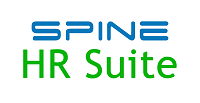Description

Payroo Payroll

Workrig
Comprehensive Overview: Payroo Payroll vs Workrig
Payroo Payroll
a) Primary Functions and Target Markets:
-
Primary Functions: Payroo Payroll is a cloud-based payroll solution primarily designed for small to medium-sized businesses (SMBs). It offers functionalities such as automated payroll processing, tax calculations, statutory reporting, employee self-service, and compliance management. Additional features often include pension auto-enrolment, real-time information (RTI) submissions, and support for end-of-year processing.
-
Target Markets: Payroo is targeted towards SMBs primarily in the United Kingdom. Its emphasis is on businesses that require a straightforward and cost-effective payroll solution without complex HR requirements. It's particularly appealing to companies seeking compliance with UK-specific payroll regulations.
b) Market Share and User Base:
- Market Share and User Base: Payroo Payroll is considered a niche product catering to small businesses. Its market share is relatively modest, especially when compared to larger payroll and HR platforms like ADP or Sage Payroll. However, it has a solid user base within its specific market segment due to its simplicity and compliance features that are tailored to UK businesses.
c) Key Differentiating Factors:
- Key Differentiating Factors: Payroo's differentiation lies in its focus on UK payroll regulatory compliance, affordability, and ease of use for small businesses. It often appeals to small organizations looking for a straightforward solution without the need for extensive HR capabilities.
Workrig
a) Primary Functions and Target Markets:
-
Primary Functions: Workrig is a comprehensive Human Capital Management (HCM) platform that offers solutions for payroll, HR management, talent management, workforce planning, and analytics. It is designed to handle complex HR needs, including recruitment, performance management, learning and development, and employee engagement.
-
Target Markets: Workrig targets larger enterprises that require a scalable solution for managing a diverse and possibly global workforce. It appeals to organizations looking to integrate all aspects of human resource management into a single platform to improve efficiency and strategic HR planning.
b) Market Share and User Base:
- Market Share and User Base: Workrig may not hold as large a market share as some global giants like Workday or SAP SuccessFactors, but it caters to a specific niche looking for comprehensive HCM solutions. Its user base consists of mid-sized to large companies that need integrated HR solutions beyond just payroll.
c) Key Differentiating Factors:
- Key Differentiating Factors: Workrig differentiates itself through its comprehensive suite of HR solutions, providing everything from payroll to talent management and learning. Unlike Payroo, Workrig is designed to handle more complex HR processes and provides substantial analytics and reporting capabilities for workforce planning.
Comparison Summary
-
Functionality: While Payroo focuses solely on payroll functionalities specifically for the UK market, Workrig offers a broader range of HR management solutions suitable for larger organizations with complex HR needs.
-
Target Market: Payroo is ideal for small UK-based businesses looking for a straightforward payroll solution, whereas Workrig targets mid to large companies internationally with comprehensive HR management needs.
-
Differentiation: Payroo’s strength is in its simplicity and UK compliance, while Workrig’s strength lies in its all-in-one HCM capabilities and ability to integrate various aspects of HR management, from payroll to employee engagement and analytics.
Both tools cater to different needs and markets, with Payroo being a budget-friendly choice for SMBs focused on payroll and Workrig being a suitable option for organizations seeking an integrated HR solution.
Contact Info

Year founded :
Not Available
Not Available
Not Available
Not Available
Not Available

Year founded :
2017
Not Available
Not Available
India
Not Available
Feature Similarity Breakdown: Payroo Payroll, Workrig
To provide a detailed feature similarity breakdown for Payroo Payroll and Workrig, let's examine both products in terms of their core features, user interface comparisons, and any unique aspects:
a) Core Features in Common
Both Payroo Payroll and Workrig are payroll solutions designed to streamline HR and payroll processes for businesses. Here’s what they typically have in common:
-
Payroll Processing: Both systems handle essential payroll functions, including salary calculations, deductions, and tax reporting.
-
Tax Compliance: They offer features to help businesses comply with local tax laws, including automated tax calculations and report generation.
-
Employee Self-Service: Both platforms generally provide an employee self-service portal where employees can access their pay slips, tax forms, and personal information.
-
Direct Deposit: A common feature is the ability to directly deposit salaries into employees' bank accounts.
-
Reporting and Analytics: Both systems should offer tools for generating payroll reports, which can be used for financial analysis and decision-making.
-
Integration Capabilities: They both typically support integration with other business systems such as accounting software or human resources applications.
b) User Interface Comparison
While specific user interface designs can vary based on software updates and company branding, here’s a general comparison:
-
Payroo Payroll: Known for its simplicity and straightforwardness, Payroo Payroll is designed to be easy to use, especially for small to medium-sized businesses. The interface often emphasizes function over form, with clear navigation meant to facilitate quick payroll processing.
-
Workrig: Workrig's user interface may offer a more holistic view as it is typically part of a broader HR management suite. This can translate into a more feature-rich, albeit slightly more complex, interface that integrates various HR functionalities beyond payroll, such as performance management and recruitment.
c) Unique Features
Depending on the editions and specific modules offered, each platform might include unique attributes:
-
Payroo Payroll: May offer features specifically tailored for smaller businesses that need straightforward payroll solutions without the complexity of full HR administration tools. This could include more affordable pricing tiers or simplified regulatory compliance focused on specific regions.
-
Workrig: As it is often part of a larger suite of HR tools, Workrig may include features such as:
- Talent Management: Tools for recruitment, onboarding, and employee performance management.
- Workforce Planning: Modules to help with strategic planning and workforce analytics.
- Advanced Integration: More robust integration capabilities with other enterprise systems due to its broader HR suite focus.
In summary, while both Payroo Payroll and Workrig offer core payroll functionalities, the choice between them might come down to the specifics of a business's additional needs (e.g., broader HR functionalities with Workrig versus straightforward payroll solutions with Payroo Payroll) and the user interface preferences of the organization.
Features

Compliance & Reporting
Employee Management
Payroll Processing

Comprehensive HR Management
Effortless Time Management
Streamlined Payroll
Recruitment Simplified
Best Fit Use Cases: Payroo Payroll, Workrig
Payroo Payroll and Workrig are two distinct payroll and HR management solutions that cater to varying business needs. Here’s a detailed look into their best-fit use cases, considering business types, scenarios, industry verticals, and company sizes:
Payroo Payroll
a) Best Fit for Business Types or Projects:
-
Small to Medium Enterprises (SMEs): Payroo Payroll is highly suitable for SMEs given its straightforward, cost-effective, and user-friendly features. It caters to businesses that require basic payroll functionalities without the need for complex HR management tools.
-
Businesses with Simple Payroll Needs: Companies seeking basic payroll services such as payslip generation, tax calculations, and compliance with statutory reporting will find Payroo adequate for their requirements.
-
UK-based Companies: Payroo is tailored primarily for the UK market, making it an ideal choice for small businesses in this geographical location. It includes support for UK-specific payroll legislation and requirements, such as RTI (Real Time Information) and auto-enrolment.
Workrig
b) Preferred Scenarios:
-
Comprehensive HR and Payroll Needs: Workrig is suited for organizations seeking an integrated HR and payroll solution. It offers various modules, including talent management, performance reviews, and workforce analytics, beyond just payroll processing.
-
Growing Companies and Enterprises: Businesses experiencing growth and needing a scalable HR and payroll solution with more advanced features may prefer Workrig. It supports a broader range of functionalities that accommodate increased complexity as businesses expand.
-
Project-based Organizations: Companies engaged in projects where workforce management, project tracking, and cost management are crucial can benefit from Workrig's capabilities in managing diverse HR activities alongside payroll.
d) Catering to Industry Verticals or Company Sizes:
-
Payroo Payroll:
-
Industry Verticals: Primarily focused on sectors with straightforward payroll requirements, such as retail, hospitality, or small service providers.
-
Company Sizes: Best suited for micro to small-sized companies that do not require sophisticated HR functionalities.
-
-
Workrig:
-
Industry Verticals: Suitable for a wide range of industries, especially where workforce engagement and performance tracking are vital, such as IT, healthcare, and professional services.
-
Company Sizes: Can cater to medium to large enterprises that demand extensive HR and payroll solution capabilities. Its modular design allows businesses to select features based on their size and specific industry requirements.
-
In essence, Payroo Payroll is more specialized for businesses prioritizing straightforward, UK-based payroll compliance at a lower cost, while Workrig is a comprehensive platform designed to meet diverse HR and payroll needs of more complex, larger, or growing organizations.
Pricing

Pricing Not Available

Pricing Not Available
Metrics History
Metrics History
Comparing undefined across companies
Conclusion & Final Verdict: Payroo Payroll vs Workrig
Conclusion and Final Verdict: Payroo Payroll vs Workrig
When it comes to selecting a payroll and human resource management solution, both Payroo Payroll and Workrig present unique features catered to different business needs. Evaluating their functionalities, pricing, ease of use, scalability, support, and integrations is crucial in determining which product offers the best value for different users.
a) Best Overall Value
In terms of overall value, Payroo Payroll tends to be more attractive for small to medium-sized businesses that need a straightforward, cost-effective, and easy-to-use payroll system. It has a no-frills approach that is ideal for companies seeking simplicity and compliance without overwhelming features.
On the other hand, Workrig provides a more comprehensive suite of HR and payroll solutions suitable for larger organizations or those with complex needs. It is ideal for businesses that require additional functionalities such as advanced reporting, talent management, and employee engagement tools.
b) Pros and Cons
Payroo Payroll:
-
Pros:
- Affordability: Cost-effective solution with transparent pricing, suitable for small to medium-sized businesses.
- User-Friendly: Simple interface makes it easy to learn and operate.
- Compliance: Regular updates ensure compliance with payroll regulations and standards.
- Efficient Support: Generally positive feedback on customer support.
-
Cons:
- Limited Features: Lacks advanced HR features like performance and talent management.
- Scalability: May not be suitable for larger organizations or those with complex payroll requirements.
Workrig:
-
Pros:
- Comprehensive Solution: Offers a wide range of HR and payroll features, including workforce management and analytics.
- Customization: Highly customizable to cater to specific business needs.
- Integration Capabilities: Integrates well with other enterprise systems and platforms.
- Advanced Reporting: Robust reporting tools for better insights and decision-making.
-
Cons:
- Complexity: The extensive features can be overwhelming for smaller businesses.
- Higher Cost: It typically comes with a higher price point, which might not be justifiable for all businesses.
- Learning Curve: More complex system which requires time to learn and navigate effectively.
c) Recommendations
-
For Small to Medium-Sized Businesses: If you are a small to medium-sized business looking for a straightforward and cost-effective payroll solution, Payroo Payroll is likely the better choice. Its simplicity, affordability, and reliable support make it an ideal option for businesses that primarily need payroll processing without additional HR functionalities.
-
For Larger Enterprises or Complex Needs: If your organization requires advanced HR management alongside payroll processing, Workrig is the recommended solution. It offers a comprehensive suite of tools that can handle complex organizational structures and HR requirements, making it a better fit for larger enterprises.
Ultimately, the decision between Payroo Payroll and Workrig rests on the specific needs of your business. It is advisable to consider the range of functionalities you require, budget constraints, and the scalability needs of your organization both now and in the future. Conducting a trial run or a demo with both platforms can further aid in making an informed choice.
Add to compare
Add similar companies




